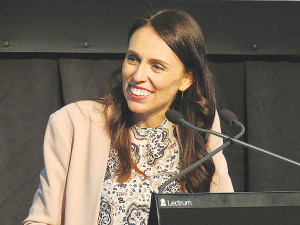Damien O’Connor: NZ united on global trade
When it comes to international trade, politicians from all sides of the aisle are united, says Labour's trade spokesman Damien O'Connor.
 A free trade deal with Europe hinges on the outcome of a meeting between NZ Prime Minister Jacinda Ardern (pictured) and the President of the European Commission, Ursual von der Leyen.
A free trade deal with Europe hinges on the outcome of a meeting between NZ Prime Minister Jacinda Ardern (pictured) and the President of the European Commission, Ursual von der Leyen.
NZ is on the brink of scoring an historic and crucial free trade agreement (FTA) with the European Union (EU).
It seems it all hinges on the outcome of a meeting in Brussels in the coming week between Prime Minister Jacinda Ardern and the President of the European Commission, Ursula von der Leyen.
Rural News understands that the only thing standing in the way of an agreement being reached is whether the EU is prepared to offer NZ what is described as ‘meaningful and commercially viable’ quotas for sheep meat and beef. NZ is holding out for this, and there is hope that the talks between Ardern and von der Leyen can break the deadlock. It is understood that the two leaders share similar values and have a very positive working relationship.
If they manage to sort out the sheep meat and beef quota issue it is possible they will sign what is called a ‘leaders agreement’. This means that the deal is effectively done and all that remains is for the officials of both sides to work through ‘technical issues’ which is a similar process to what happened when NZ and the UK finalised that FTA. Obviously other approvals will be needed but these are unlikely to jeopardise the FTA.
Both Ardern and the Minister of Trade, Damien O’Connor will be in Brussels for talks with top EU politicians while our team of trade negotiators are still working away on the details of the FTA. As well, representatives of the NZ dairy and meat industry are in Brussels to add support to the NZ position.
One of the concerns of the NZ dairy industry has been the EU’s determination to include geographical indications (GI’s) in the FTA. These generally apply to the names of cheeses which are linked to specific towns or regions. They can also be applied to wine. It’s understood that NZ will accept the EU’s position on GI’s because every other nation that has concluded an FTA with the EU has had to concede that. However it would appear that NZ is working to have a significant transition period to allow NZ cheese makers adjust to the arrangement which would prevent them using certain generic cheese names.
On the positive side the word coming out of Brussels is that should the FTA be signed and sealed, horticulture will be a major winner.
There is a general push to get the FTA finalised in the coming week because Europeans take their holidays about this time of the year and if no agreement is reached now it could be several months before talks resume.
Fonterra’s impending exit from the Australian dairy industry is a major event but the story doesn’t change too much for farmers.
Expect greater collaboration between Massey University’s school of Agriculture and Environment and Ireland’s leading agriculture university, the University College of Dublin (UCD), in the future.
A partnership between Torere Macadamias Ltd and the Riddet Institute aims to unlock value from macadamia nuts while growing the next generation of Māori agribusiness researchers.
A new partnership between Dairy Women’s Network (DWN) and NZAgbiz aims to make evidence-based calf rearing practices accessible to all farm teams.
Despite some trying circumstances recently, the cherry season looks set to emerge on top of things.
Changed logos on shirts otherwise it will be business as usual when Fonterra’s consumer and related businesses are expected to change hands next month.

OPINION: Here w go: the election date is set for November 7 and the politicians are out of the gate…
OPINION: ECan data was released a few days ago showing Canterbury farmers have made “giant strides on environmental performance”.